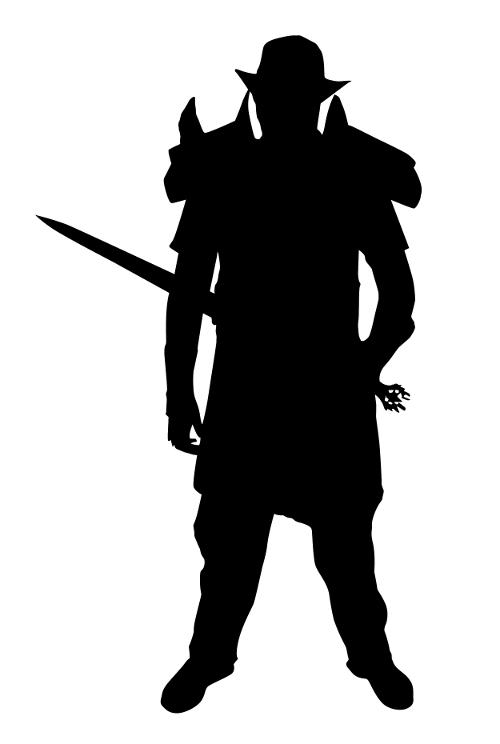A Pepper Grinder Post
Moan and Groan
Picture this scene: a shabbily-dressed holy man with long hair and a beard is sitting cross-legged on the floor of a dirt hut, praying or meditating. Suddenly a shining figure, who looks as though he is on fire, grabs the man by the hair. The roof of the hut flies off, and the burning figure rises into the air, dragging the holy man with him. The man finds himself deposited in front of some kind of huge statue of multiple living beings, but this is no statue, for it speaks and moves. It speaks to the holy man and shows him the evil in the city to which he has been brought.
 He then hears the sentence pronounced against the city: “Bring the killing squad.” Six huge men come in, each with a massive club. “Kill them all,” they are told. Pointing to some men nearby, the strange being says, “Start with these men right here.” As the killers advance, they begin to spin their massive clubs as easily as if they were batons. The men nearby watch, paralyzed with fear as the squad draws near, and then each falls to the ground dead, with one blow from one of the clubs. The squad moves out into the street looking for its next victims.
He then hears the sentence pronounced against the city: “Bring the killing squad.” Six huge men come in, each with a massive club. “Kill them all,” they are told. Pointing to some men nearby, the strange being says, “Start with these men right here.” As the killers advance, they begin to spin their massive clubs as easily as if they were batons. The men nearby watch, paralyzed with fear as the squad draws near, and then each falls to the ground dead, with one blow from one of the clubs. The squad moves out into the street looking for its next victims.
Does this sound like some type of dystopian fantasy? The next threat to Gotham City in a new Batman movie? Nope. It’s from Ezekiel. Well, pretty much. I used my imagination a little but this is basically what Ezekiel relates in chapters eight and nine of the book that bears his name. There is, however, one crucial piece I have left out. Here is my translation of Ezekiel 9:1-6:
I heard him call out in a loud voice, “Bring the city guards with their weapons.” Six men came in from the upper gate, each with a deadly weapon* in his hand. One of the men was clothed in white linen, and had a scribe’s writing kit at his waist. They came in and stood beside the bronze altar. The glory of the God of Israel went from above the cherubim where it had been, to the threshold of the temple. Yahweh said to the man in white linen with the scribe’s writing kit at his waist, “Go through the city of Jerusalem and make a mark on the forehead of the people who groan and mourn over all the offensive things that are done there.” Then, as I listened, he said to the others, “Go through the city after him and kill without pity or compassion. Kill old men, young men, young women, children, and married women—destroy them. But keep away from anyone who has the mark. Start at the temple.” So they started with the elders who were in front of the temple.
*Literally an instrument of shattering. Probably something like a war club, as opposed to a sword.
As you see, the being who ordered the killing is not some strange Hollywood villain, but is the Lord God of the universe! What is going on here? To understand this scene, we need to back up some.
Ezekiel lived during the last, depressing days before and after the destruction of Jerusalem by the Babylonians in 586 B.C. In fact, Ezekiel was part of a large group of captives taken to Babylon by Nebuchadnezzar along with King Jehoiachin about eleven years before that final defeat. It was while in exile that Ezekiel saw the visions he wrote about. When we get to chapter nine, Ezekiel has already been called by God (in the same mysterious form he took in chapters eight and nine) to be a prophet, and was led to predict, through symbolic action, the final siege and destruction of Jerusalem.
Then, in chapter eight, God shows Ezekiel a number of the idolatrous and wicked things the Jews in Jerusalem are doing. This context is very important. It makes all the difference between some crazy bad guy deciding to kill everyone in a city, and the righteous God of the universe executing judgment. Not only is God killing the people who have disobeyed his clearly stated commands (after being warned repeatedly by prophets), he is also defiling his city and his temple.
Remember in the Old Testament, one of the things that would absolutely make a person unclean was contact with a dead body. For example, Numbers 9:6-10 speaks of what people should do who could not celebrate the Passover because they were unclean as a result of coming in contact with a corpse. By filling Jerusalem with the slain, and starting at the temple, God is deliberately making them both defiled.
But why would God, who is so concerned with purity, want to defile his temple and his city? I think it is because there is something God hates at least as much as the sins the Israelites are committing—hypocrisy. Most of the Jews still living in Israel seemed to be putting on an outward show of being followers of Yahweh, while in secret they were hedging their bets by serving other gods as well. God is saying, “You aren’t going to have it both ways. If you choose to serve these other gods, I will make it absolutely clear that there is nothing holy about my city and my temple. They no longer belong to me.” We also see this by the way the Glory of God went from its standard position above the cherubim in the Most Holy Place to the threshold of the temple. God is getting ready to abandon the temple—something Ezekiel is shown in the very next chapter.
 But what is the one detail I did not include in my dystopian retelling of the story at the beginning of this posting? It’s one of the strangest parts of the whole vision—the guy with the writing kit. Back in the days before ball point pens and magic markers, writing required a few items. At a minimum, one needed some kind of container for ink, something to dip in the ink and write with, and something to sharpen or repair that writing implement. And so, along with the hulking guys with the big clubs, we also find someone with a box or pouch at his waist that holds writing supplies.
But what is the one detail I did not include in my dystopian retelling of the story at the beginning of this posting? It’s one of the strangest parts of the whole vision—the guy with the writing kit. Back in the days before ball point pens and magic markers, writing required a few items. At a minimum, one needed some kind of container for ink, something to dip in the ink and write with, and something to sharpen or repair that writing implement. And so, along with the hulking guys with the big clubs, we also find someone with a box or pouch at his waist that holds writing supplies.
And why is a scribe needed when the great slaughter is about to start? For the same reason the blood of a lamb had to be put on the Israelites’ door posts before the night of the Passover in Exodus. The scribe was to put a mark on the foreheads of the people whom God wanted to spare, and the executioners were to keep away from those people. God, as he so often seems to do, has left a way out for his servants.
But the thing that really fascinated me, and that made me want to write this post, was what it was that distinguished the people God spared. They were not people who passed out tracts to their neighbors, telling them they needed to repent. They were not people who avoided those filthy idolaters and spent all their time in church. They were not people who went around joyfully praising the Lord in spite of the dire situation around them. They were people who groaned and mourned over the wicked things that were being done in Jerusalem.
The two words I have translated as “groan” and “mourn” are fairly unusual words, but both have similar meanings, and in fact, they only differ by one letter in the Hebrew. For this reason, I really wanted to translate the phrase as “moan and groan.” Unfortunately, that phrase, at least to me, has connotations of a gloomy complainer, so I couldn’t bear to use it, as much as I wanted to. The phrase in the Hebrew describes someone who is distressed and upset, but bears his grief quietly or silently.
In Hebrew culture, the reaction to sorrow, such as forsomeone dying, was usually loud and public wailing. The sorrow the few righteous people in Jerusalem felt, however, was different. Rather than one great grief, there were many small ones. Over and over, those people saw evidence that their neighbors had rejected the true God. They knew God’s judgment on the city was richly deserved, but there was nothing they could do to change their neighbors’ hard hearts.
I was struck by this because I do not think my situation in modern America is so very different from that of the people in Jerusalem at that time. Some of the sins are different, but I have to believe they are as widespread and probably as offensive to God as those in the time of Ezekiel. The only thing we might have in our favor is that we are not God’s chosen people (meaning the people living in the U.S.), living in God’s chosen city, so, perhaps, the bar is slightly lower. Also, I do think that in spite of the decline of our culture and the easy acceptance of things which once were seen as shameful, there are still many people in America who are sincerely trying to serve God, even if we do have cultural blind spots.
What cut me most when I read this passage in Ezekiel was comparing my reaction to wicked things to that of those who received the life-giving mark on their foreheads. I have smiled or chuckled quietly when told about people’s foolish actions when drunk. I fear that I often give the outward impression of acceptance of evil, while inwardly feeling disapproving and slightly superior. But how should I feel? It should break my heart.
I should see every abortion, every casual hookup, and every drunken night as something that deeply saddens God and that makes the people involved miserable, no matter how loudly they proclaim that they are “having fun.” I am not saying that we need to literally moan when someone brags about cheating on taxes. But I do think we need to make sure we never lose sight of the sadness of sin. That is one of the marks of a true disciple.
Lord, I confess that I have chuckled when I should have moaned. I have looked on in smug superiority when I should have groaned. Let my heart be broken by the things that break yours.
- Pepper
Posted 2014-04-25
*Photo Credits: warrior by Michal Zacharzewski, feather by sanja gjenero
